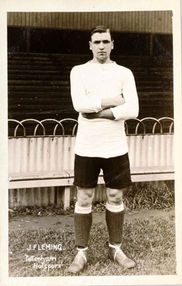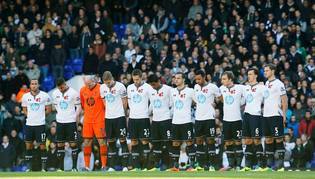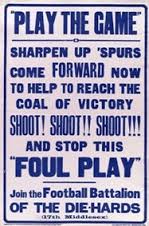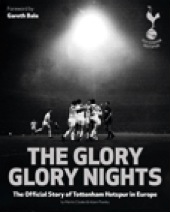|
When the war started it was widely thought that it would not last long, a popular saying of the time was ‘over by Christmas.’ The War Office did not request the League to cancel its games and the police actively encouraged the game to continue. The Football League, like many other sports, decided to continue with their 1914/15 fixture list. In some quarters this was seen as unpatriotic. Young fit men should be at the front fighting. Others felt that the nation would need something to distract them from the conflict and maintain a sense of normality. It was only in the summer of 1915 that the Football League suspended their competition. The government still encouraged the game to continue as long as it did not interfere with wartime activities. Thus the London clubs formed the London Football Combination which would run throughout the conflict. The Football League fearing they might lose control at first threatened any club appeared in this new League that they would face expulsion but were pursued to change their mind. As the War progressed troops arrived in England from across the Commonwealth and America. These troops brought with them their own games. Stadiums soon witnessed sports such as Australian football and Baseball. Our temporary home at Highbury hosted the Anglo-American Baseball League. Many Tottenham players and staff enlisted together and served in the Royal Engineers. The Club handbook after the war recorded “On the combined effort to achieve victory in the great game of war we can look with solemn pride. Naturally, our thoughts revert to those who fought and fell. It is rather a long list of men associated with Spurs who made the supreme sacrifice. To their memories we pay humble tribute, knowing full well that if they could send us a message to-day it would be just this-“Carry on!””  James Fleming was 33 when he was killed. James Fleming was 33 when he was killed. It wasn’t just those who died, many had their careers cut short, such as Tom Collins who signed from Hearts in November1910. He was wounded in France and the injuries ended his career. Others like our former star John Cameron who was coaching Dresden SC in Germany at the time was interned by the Germans for the duration. The prison camp held 5000 prisoners and he helped set up league and cup competitions, becoming the secretary of the camps football association Vast numbers of players, both professional and amateur joined what became known as the Footballers Battalion, part of the Middlesex Regiment. As well as many fans who wanted to serve with their peacetime heroes. Tottenham’s former player and director Vivian Woodward became an officer and was wounded in action. Another former Spurs player Walter Tull was also promoted and died in 1918. (1) I’ve traced fourteen players with connections to the club who fell during the conflict. John Fleming, a Scot whose brother also played for the club. He scored three league goals for us before moving to Glasgow Rangers. Ed Lightfoot, played 66 first team games. William Lloyd who scored in his last game for the club. Alan Haig-Brown, an amateur and school teacher, he was awarded the Distinguished Service Order for Bravery. John Hebdon, Alf Hobday, Walter Tull and John Jarvie. Alexander MacGregor, joined the club from a Glasgow youth team and was killed on his first day in France. Finlay Weir, who played over a hundred games for the club, scoring twice. Archie Wilson killed on the first day at the Battle of the Somme. Norman Wood, played for the London FA four times. George Badenoch and Fred Griffiths, a goalie who won two Welsh caps before joining Spurs.
This is one part of the Tottenham story I don’t really know as my own family suffered heavy losses during the war and those who came back, it never felt right to ask, so my thanks for filling in the gaps to - Andy Porter, THFC, The Imperial War Museum, The Commonwealth War Graves Commission, BBC, Bob Goodwin, Mehstg, The National Football Museum and the Fighting Cock, Note 1 - Woodward will be featured in a forthcoming article on our England players and Tull is also due to be featured in the near future. Keith Harrison t-Keith16024542
5 Comments
Suraj
12/11/2014 05:50:39 am
wonderfully well researched yet again and the best Spurs related article I've read this Remembrance Day. Thanks Keith!
Reply
keith
12/11/2014 09:09:12 am
thats very kind ta
Reply
keith
8/4/2015 08:47:03 am
since writing this I've found references to two more former players who were killed in the war. Ernie Coquet and James Chalmers. Ernie was a right back and played for us from 1908- 11. He made 78 league starts and 8 in the FA Cup with 1 goal. James was a reserve player and as far as I can tell did not play for the first team. - ref NFM.
Reply
Louise Treleaven
17/11/2021 05:28:43 pm
Thanks for sharing this. We've just found out that my husband's great grandfather William Lloyd was in the reserve team for Spurs, so it's lovely to see him mentioned here. He was killed at Ypres in 1914.
Reply
keith harrison
4/11/2022 11:47:47 am
sorry only just seen this reply - many thanks k
Reply
Leave a Reply. |
Features
Flying Down to Rio History of T.H.F.C. Tribute to Bill Nicholson Talking Tottenham Early Legends The Road to Turin International Connections Hotspur Towers Most Read Articles
The 100 Year War Interview with Marina Sirtis A Long Dark Shadow By Royal Appointment School Report: An Insight into the Younger Eric Dier Dear Jimmy All Change At Spurs Hotspur Towers History Of THFC: Part 1 Passage to India: Rohan Rickets Thanks For The Memories Our Tommy Carroll The AVB Files: Part1 The Lilywhites You The Jury The Hand Of Hugo Connection - Argentina Creating a Reputation One Hotspur Archives
August 2018
Categories
All
|


 RSS Feed
RSS Feed

